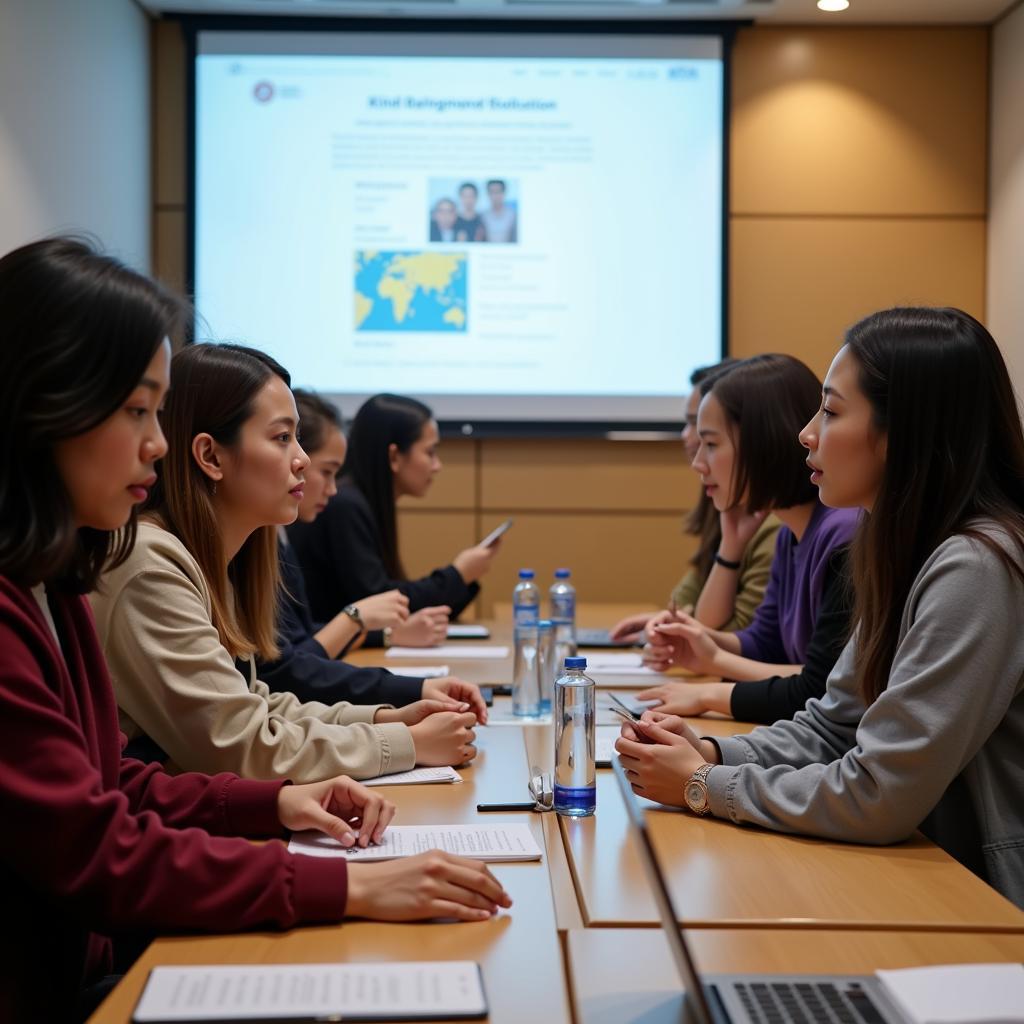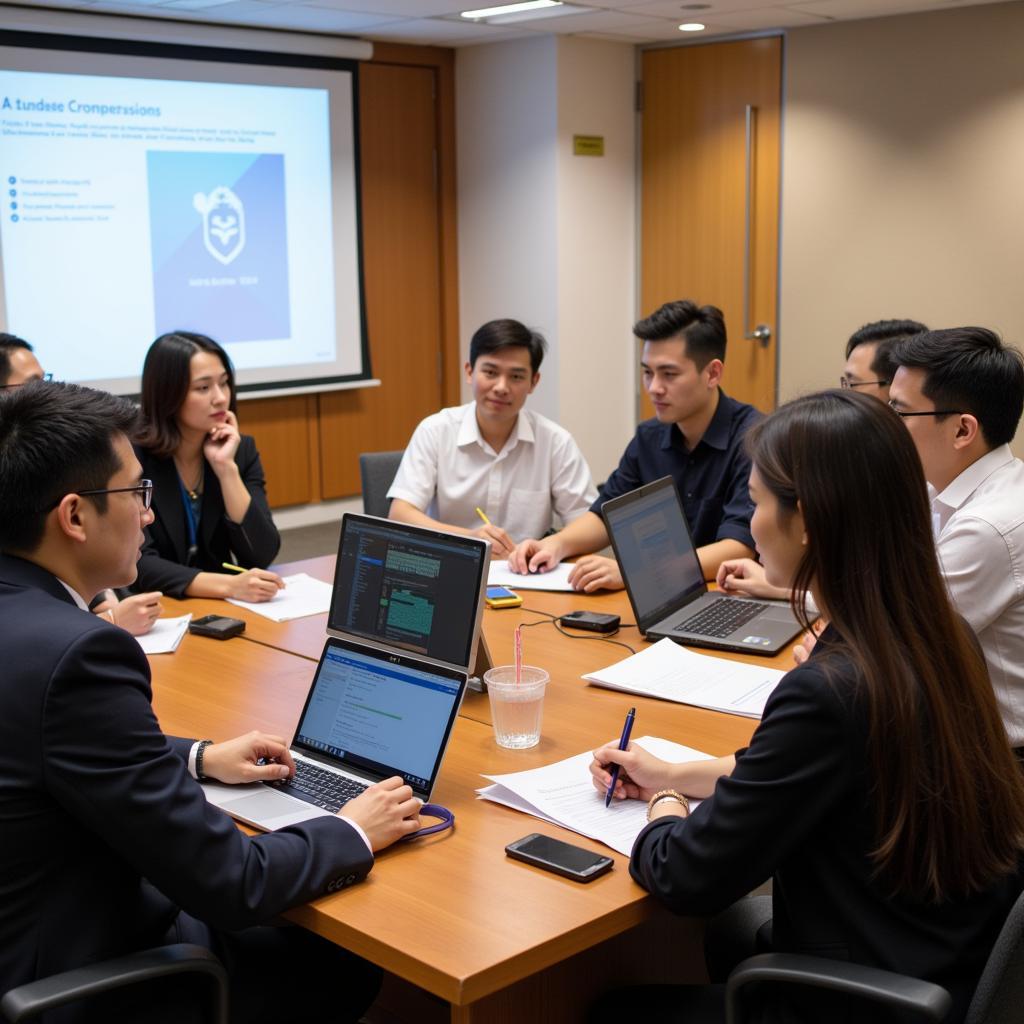The term “ASEAN university” encapsulates a vast network of higher education institutions across Southeast Asia, playing a crucial role in fostering regional cooperation and integration. These institutions are not only centers of academic excellence but also serve as catalysts for cultural exchange, knowledge sharing, and innovation within the ASEAN community.
The Rise of ASEAN University Collaborations
The increasing interconnectedness of the global landscape has led to a surge in collaborations between universities worldwide. This trend is particularly evident in Southeast Asia, where ASEAN university networks are actively working to address shared challenges and leverage collective strengths. These networks facilitate:
- Joint Research Initiatives: By pooling resources and expertise, ASEAN universities are undertaking collaborative research projects that address critical issues such as climate change, public health, and sustainable development.
- Student and Faculty Mobility Programs: Exchange programs enable students and faculty members to gain international exposure, broaden their perspectives, and build lasting connections with their counterparts from other ASEAN countries.
- Curriculum Development and Harmonization: ASEAN university networks are collaborating to develop joint degree programs and harmonize curriculum frameworks, enhancing the quality and relevance of higher education across the region.
 ASEAN University Collaboration
ASEAN University Collaboration
Benefits of ASEAN University Networks
The emergence and strengthening of ASEAN university networks bring forth a myriad of benefits, both for the institutions themselves and the ASEAN region as a whole:
- Enhanced Academic Reputation: Collaboration with renowned universities within the ASEAN region elevates the international standing and academic reputation of participating institutions.
- Increased Research Output and Impact: Collaborative research initiatives often lead to higher-quality research outputs and a greater impact on policymaking and societal development within ASEAN.
- Improved Graduate Employability: Exposure to diverse perspectives and learning environments equips graduates with the skills and knowledge necessary to thrive in the increasingly globalized job market.
Key Initiatives and Organizations
Several key organizations and initiatives are driving the growth and success of ASEAN university networks. These include:
- ASEAN University Network (AUN): Established in 1995, AUN is one of the oldest and most prominent ASEAN university networks, focusing on promoting collaboration in education, research, and outreach.
- Southeast Asian Ministers of Education Organization (SEAMEO): SEAMEO works to improve the quality of education in Southeast Asia, supporting various regional initiatives, including the development of university networks.
- ASEAN-European Academic University Network (ASEA-UNINET): This network fosters collaboration between universities in ASEAN and Europe, promoting academic exchange and joint research projects.
 ASEAN University Network Meeting
ASEAN University Network Meeting
Challenges and Opportunities
While ASEAN university networks hold immense potential, certain challenges need to be addressed to fully realize their benefits:
- Funding Constraints: Securing adequate funding for collaborative research and exchange programs remains a significant hurdle for many universities in the region.
- Administrative Barriers: Differences in academic calendars, credit transfer systems, and visa regulations can pose administrative challenges to student and faculty mobility.
- Language Differences: While English is widely spoken in academic settings, language barriers can still hinder effective communication and collaboration among students and faculty from different linguistic backgrounds.
Despite these challenges, the future of ASEAN university networks appears bright. As ASEAN continues to integrate economically and politically, the importance of these networks in fostering understanding, collaboration, and innovation will only grow.
Conclusion
ASEAN university networks are playing an increasingly crucial role in shaping the future of higher education in Southeast Asia. By fostering collaboration, knowledge sharing, and innovation, these networks are equipping students with the skills and knowledge needed to thrive in the globalized world. As ASEAN continues to grow and prosper, the importance of investing in and strengthening these university networks cannot be overstated.
For any inquiries or assistance regarding ASEAN university collaborations, please reach out to us at:
Phone Number: 0369020373
Email: [email protected]
Address: Thon Ngoc Lien, Hiep Hoa, Bac Giang, Vietnam
Our dedicated team is available 24/7 to provide support and guidance.

